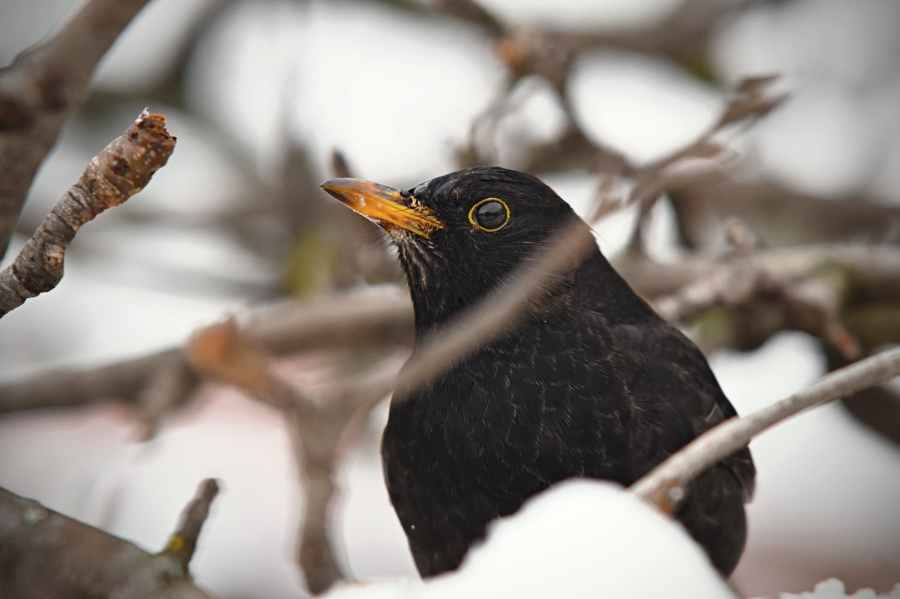I tried as much as I could to keep a straight face.
The student presenter continued, talking about the implications of Thirteen Ways of Looking at a Blackbird, the depth of the subject matter, the unique structure, the nature of the word choice, the history. I listened, and a small giggle slipped out. There was nothing particularly funny in what she was saying. I covered my mouth and coughed, avoiding the glances of all my classmates, who were also hiding smiles behind their hands as our presenter, very seriously, spoke on this poem.
We were in a college class called American Lit II, and each of us had different works we had to read and present on. For some reason, I think because of the presentation, we were meeting in a room off of the library at night. I happened to be working in the library just before this class started, so most of my classmates congregated around the main desk as we discussed this poem. It was late at night, and we were overtired from the day and needed a reason to laugh. Thankfully, it was only me and another student working that night, and there was scarce another student in the library because of the hour.
So we laughed. Loudly.
There was something about the hour, the nature of the poem, the choice of words, and the structure that made this poem simply hilarious at that moment. Reading through it again, I can’t help but smile. Every time I see a black bird, I think back to that night. I think back to all of us making a ruckus in the library waiting for our class to start, to us following our professor into the room and sitting down to listen to the presentation. I think back to watching that poor student stand up and read this poem aloud, verse by verse, and speak about the deeper philosophy behind the poem, most of which I have since forgotten. Most of all, I think back to a moment of amusement and horror as she got to verse IV when I, unable to keep a fellow student out of my line of sight, laughed, loudly, in the middle of this presentation.
A man and a woman
Wallace Stevens, Thirteen Ways of Looking at a Blackbird
Are one.
A man and a woman and a blackbird
Are one.
I remember the student pausing only for a moment to stare at me, and the professor staring for a moment longer in disbelief. I am a fairly quiet person, and this outburst was startling, to say the least. Thankfully, the other students started giggling, none too quiet, after my first laugh, and we made it through the rest of the class without a hiccup. I apologized to the student afterward, and to my professor, and explained the whole situation as best (and as seriously) as I could.
Honestly, I cannot remember what her presentation was about. Moreover, I cannot say much about this poem itself. It is a modernist poem that was influenced more by the disruption of the world at the turn of the century than anything else. I’m not a huge fan of modernism, but there is something to be gleaned from this poem. As the poem itself is disjointed, so too was the world. People had begun to throw away all that was true and constant before the Great War because after It, they realized what they thought was true and constant was not. They had trusted in the wrong things. There is depth to this poem, in its own disjointed and troubled way. Read the poem, and you will feel the shadows follow you, the unraveling of Stevens and the people of the early 20th century. The imagery is also striking, and I encourage you to read it out loud.
Further, it connects us living now to the chaos and rearranging of society during its contemporary era. But regardless of the historical context, I will always remember this poem in the emotional, personal context for me when a handful of students gathered together and bonded over a disjointed poem of sadness and sensation that made them laugh in the midst of school’s drudgery for a moment, and then made them laugh together again during the reading of Thirteen Ways of Looking at a Blackbird. Perhaps this is just one more way to look at a blackbird?
Blessings to you and yours,
~Madelyn Rose Craig
